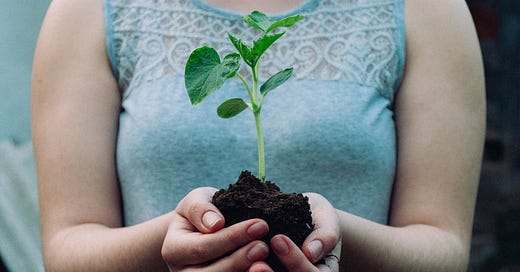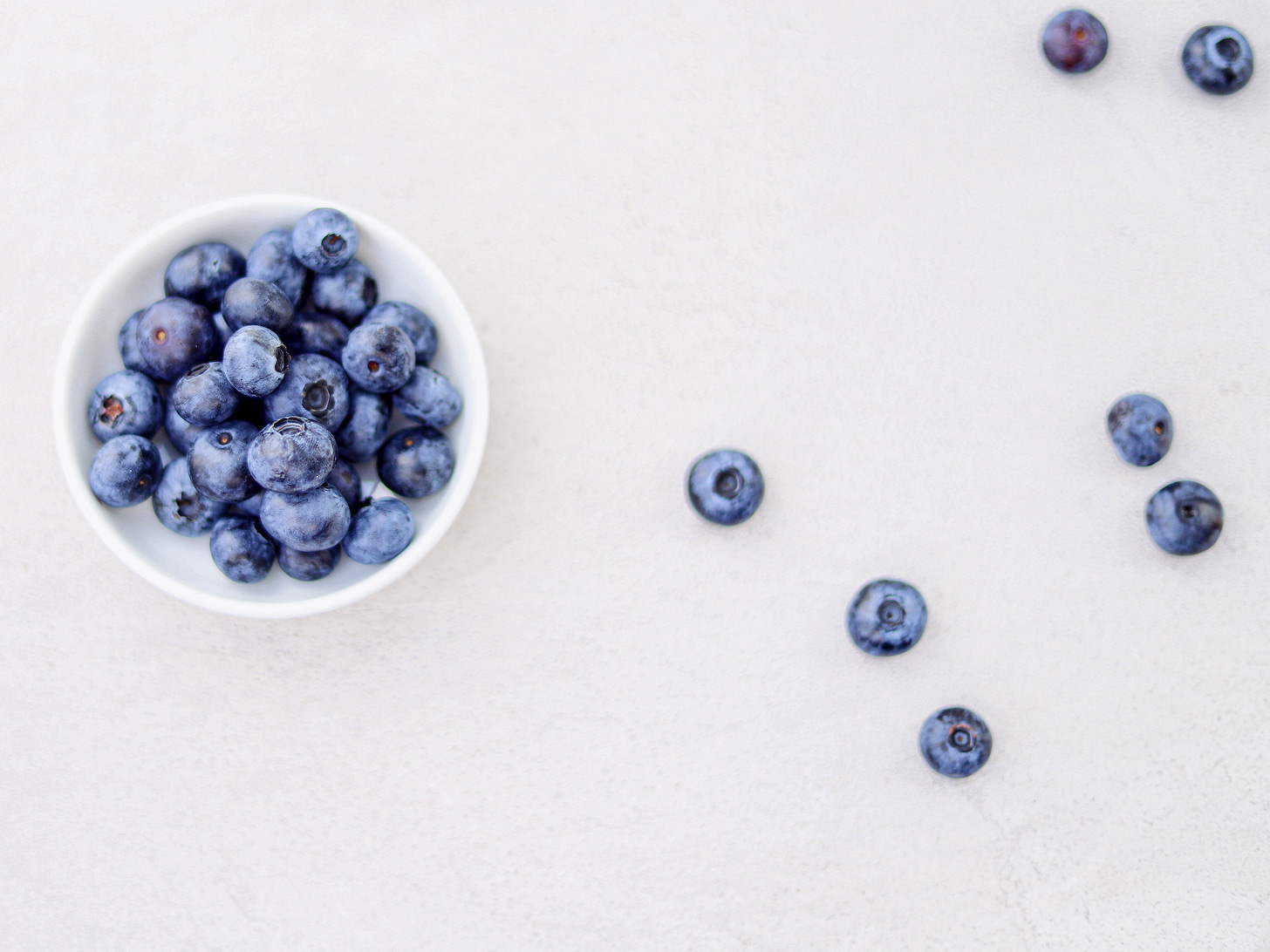The average everyday American consumer wastes an estimated 238 pounds of food every year.
How’s that for “having quite the appetite” !?!
This is just the consumer, bringing food into their home – this is not food wasted at the restaurant, the grocery, or at the farm – just the consumer alone.
[hey there…. I know what you must be thinking… ]
“This is absurd. I don’t waste that much food. It’s the restaurants and grocery stores that probably waste a lot more food than me! This is their problem, not mine!
But, let me connect the dots a bit more here for us.
We - the consumers, customers, purchasers, decision makers, lobbyists with our dollars… we impact the value chain, the supply chain, and the money chain. Based on how much we buy, the store will choose to try to optimize supply and demand to make the most profit, reduce costs, and maximize potential returns to match the given demand with their order purchases for supply. Sadly, this isn’t always done very well due to our giant food choices, food processing and shipments, etc.
We’ve all seen the mountains of far-ripened avocados and thought “none of those are going to be bought! This stinks. All those avocados are going to be wasted I bet. How dumb!” And we’ve likely seen the lines of bananas that look smushed, bruised, opened or far too browned to be expected to be purchased by most consumers still sitting on supermarket shelves, right?
Berries grow mold, lettuce begins to wilt, meat grows gray, apples begin to get closer to applesauce… it’s a sad state to see regardless if it happens at the grocery or in our homes.
But here’s the good news, we CAN all make a difference. We can ALL make a difference.
You see, the grocery listens to us, they watch us, and they want to make us happy customers for life. Whatever we are willing to buy, they are willing to sell. However much we place in our grocery carts, they will remember and try to make their next order of food shipment to accommodate and match our food purchasing behaviors.
And here’s the good part - the less we waste, the less they waste. The more scrupulous we are with our food decisions and our dollars, the more they will be too. The less we over-purchase, the less likely the grocery food purchaser will too. The more we plan ahead and the better we reduce our waste, the better all other places of the value chain can be as a result.
Surprisingly, the above average of 238 pounds each year comes out to be about 4-5 lbs of food wasted each week, and while this might sound like a lot, just imagine a whole sack of potatoes going rotten or onions finding the same fate? Tomatoes smashed in transport from cart to car and car to kitchen, etc. You get the point. It can happen. But still, you might be thinking, “I don’t waste nearly that amount of food at all!” which is great! But, what I want to point out is that the 238 pounds per year is an average, meaning while you may be wasting less than the average, others will be wasting much much more. Sounds even more preposterous doesn’t it? Trust me, I was shocked when I heard about it for the first time too.
This results in an estimated extra wasted COST of $1800 per year for the average household.
*Cha-Ching! (or maybe splish, splash.. as more money is being flushed down the drain…)
Taking the numbers by the number of Calories, this is estimated at 1200 Calories of wasted food PER DAY (Enough to feed another human being!)
But like I said, we can all play a part in the planetary health promotion. If we simply dismiss this as someone else’s problem, then we really miss the point entirely. We live together, separate but together. Just look at the trash we have long shipped to china to dispose of our waste as it pollutes their air.. and yet we judge them for having such a dirty, nasty city.. (whoops!) We all have crap in our lives we could improve upon. I’m not saying anyone is above the fray at all. We’re all in this together in my opinion.
Tell me what you think!
Why do you think this happens?
What has been your experience with food waste in your home or in the household where you grew up?
What are the top of mind foods or condiments or food packages most commonly wasted in your home?
What are the top strategies you try to us for mitigating (reducing) food waste in your home? I’ll tell you some of my tips below!
Social scientists have pointed to the difference of perspective on food in America compared to other cultures around the world. American culture tends to think about food as a commodity, as a product, as a consumer good compared to other countries and cultures around the world which seafood more as nourishment and human livelihood.
In America, we don’t typically value or cherish or preserve or conserve food as much as people in many other places around the world. We have so much abundance sometimes we forget what it’s like to have very little. We know it is always a-plenty, so we don’t worry over it much at all.
And I think that there is some credit to the starts from what I have observed traveling to other countries and knowing many people from other cultures at this point in my life. It has always been helpful for me to look elsewhere to help compare my own lived experience and shape my personal perspective on life and living. I love seeing things deeper and more well understood after connecting the dots, such as this next point..
There are many negative side effects to our such great losses around food waste, including but not limited to our own household cost, excessive processing, waste and disposal, the space and time deploying it into landfills, and not to mention the lesser known impacts for the climate, because food waste actually has a huge impact on greenhouse gases by emitting methane and extra CO2 from its waste and refuse (yes, your clogged garbage disposal smells disgusting, and that’s what the climate scientists are talking about with our atmosphere overall)
Those gasses get trapped in our atmosphere, just like we talk about emissions from vehicles, factories, planes and travel and other industries… food waste is also one of those areas of environmental sustainability we can all learn a little bit more about ourselves.
I’m not here to make anyone feel any more guilty than they already do about food waste, that’s for sure! I’m here to help us better understand, connect the dots of our decision making and then help inspire us for positive change for the future… so here we go with one of my top tips to help reduce food waste in your own life and lifestyle.
Beautiful Fruit
Fruit – a common culprit of food waste because its so bright and shiny sweet and delicious but we tend not to eat as much as we should as we instead end up choosing to eat out, skipping a meal, or going for extra grains, milk, meat, or pasta instead.
So to help reduce your food waste around fruit, simply plan ahead a bit more, making sure you get your colors of the rainbow every week and make sure to keep a whole fruit or two in your regular eating everyday!
Consider eating seasonally and local to get the best bang for your buck and experience the best flavors full of delight with fresh organic fruit when you can.
If your fruit tends to go bad too soon, just chop it all up and throw it into the freezer for later to use in smoothies, ice creams, frozen popsicles, desserts, and even cooked oatmeal and more at a later time.
Need some healthy inspo for smoothies? Let me know in the comments and I’ll hit you up with some awesome creative crafted smoothies and desserts with fruit.
If you fancy CITRUS, lemons and the limes are great fruit to keep on hand to splash and sprinkle onto fruit to keep their quality longer and prevent them from going bad. Also, did you know that Avocado is a fruit too! Yup! It has a giant seed in the middle and all that beautiful green flesh of an avocado is a wonderful healthy fat full of fiber and beneficial minerals like magnesium too.
To help preserve your cut avocados… be sure to use a plastic or ceramic knife when cutting and plastic or ceramic spoon when scooping – anything that isn’t metal because it’s the enzymatic reaction between the metal ions of the utensils we use that actually start to break down our food faster.
So, use a different utensil and if you have any leftovers, splash it with some lemon or lime juice and place it in a sealed container in the fridge. Wa-lah!
There ya go! A couple quick tips to help you reduce food waste this week and every week in your healthy, sustainable kitchen ;)
ps. if you do find yourself still struggling with some foods that just happen to go bad, don’t get yourself into a guilt trip, instead just try to plan ahead a bit better next time and consider the awesome opportunities around food waste composting, great for your garden too if you like to grow your own flowers, herbs, spices, veggies and more! Let me know if you have any special gardening stories in the comments ;)
Great Additional Resources for You to Gander
Environmental Working Group EWG - Food Waste Reduction + Tips
Mary Purdy MS RDN - EcoFriendly Eating + Podcast
Food and Agriculture Organization FAO - High Level Data + Global Ideas
FAO - Become a Food Hero this year with THESE 15 Tips - CHECK THIS OUT :)
Come find me and say hello! 😁
Instagram 📸 🌱 🌶️
Twitter 🐦 🐥
LinkedIn 👔 👨⚕️ 💼
Medium Writing Blog 📝 ✍️ + ps I write even more over here if you wanna follow along with even more lessons, ideas around self-improvement, personal growth and more :)
Facebook 😼📚 Community = Common goals working in Unity
Every new season brings new ideas and new ways of thinking, living, and feeling.
This is the ebb and flow of life and our values will continue to be our guiding compass leading our steps forward.
We Zig and We Zag, as we learn to adapt. We can all make a difference in this great big world together, from person to person, from street to street and everywhere in between. 💪






